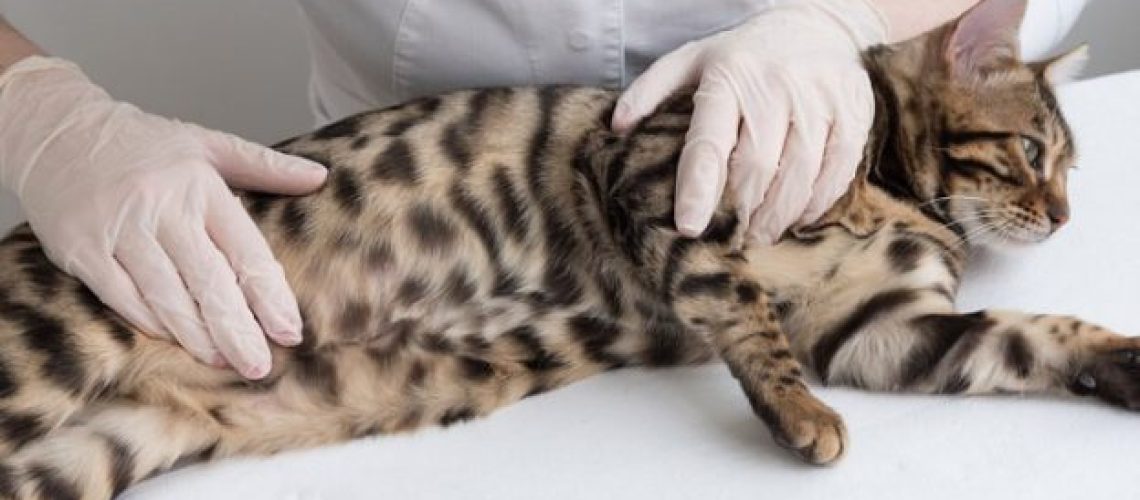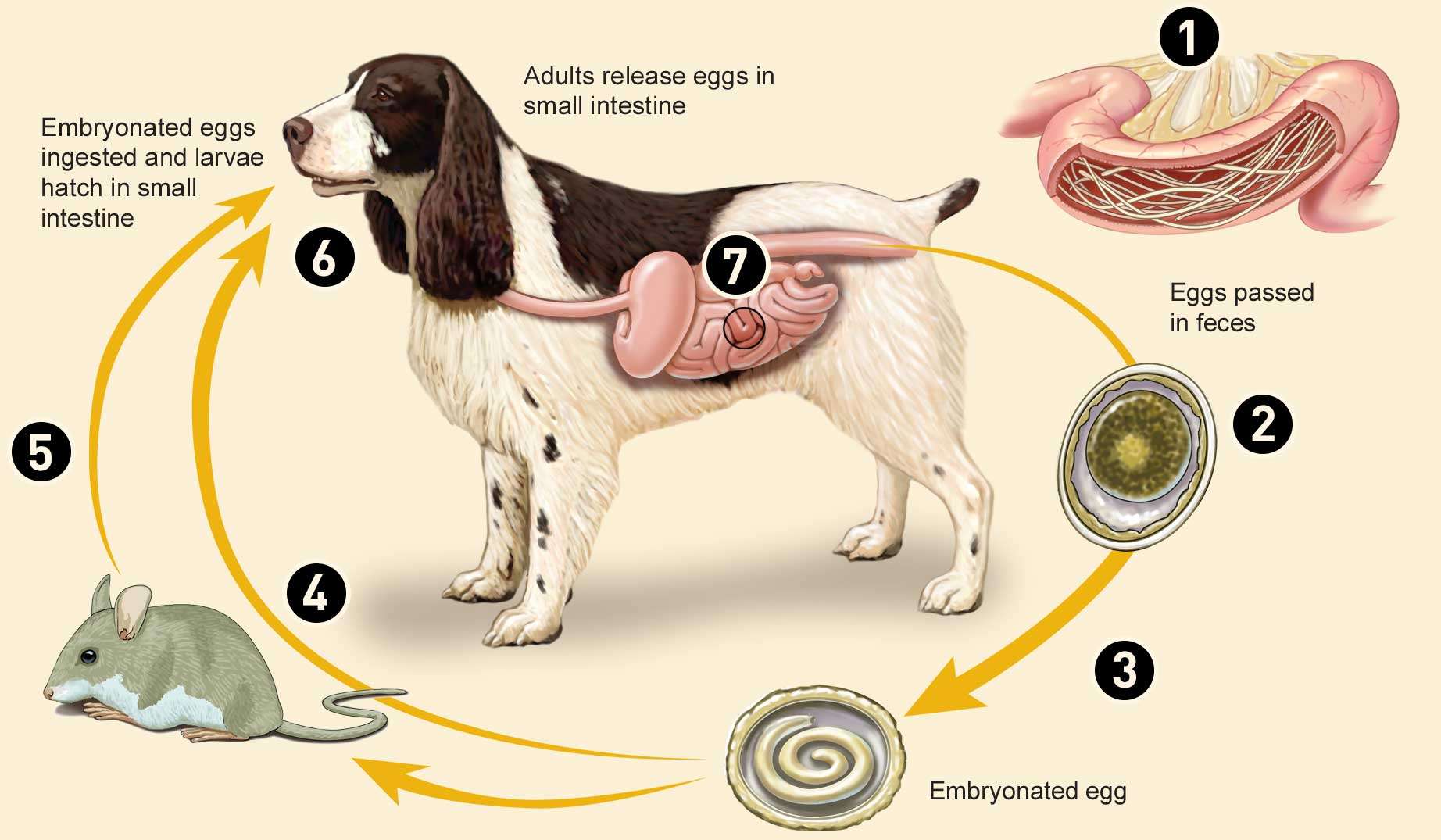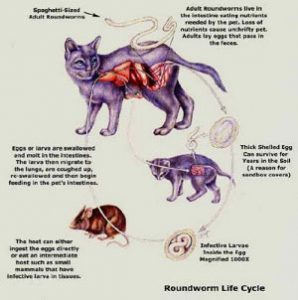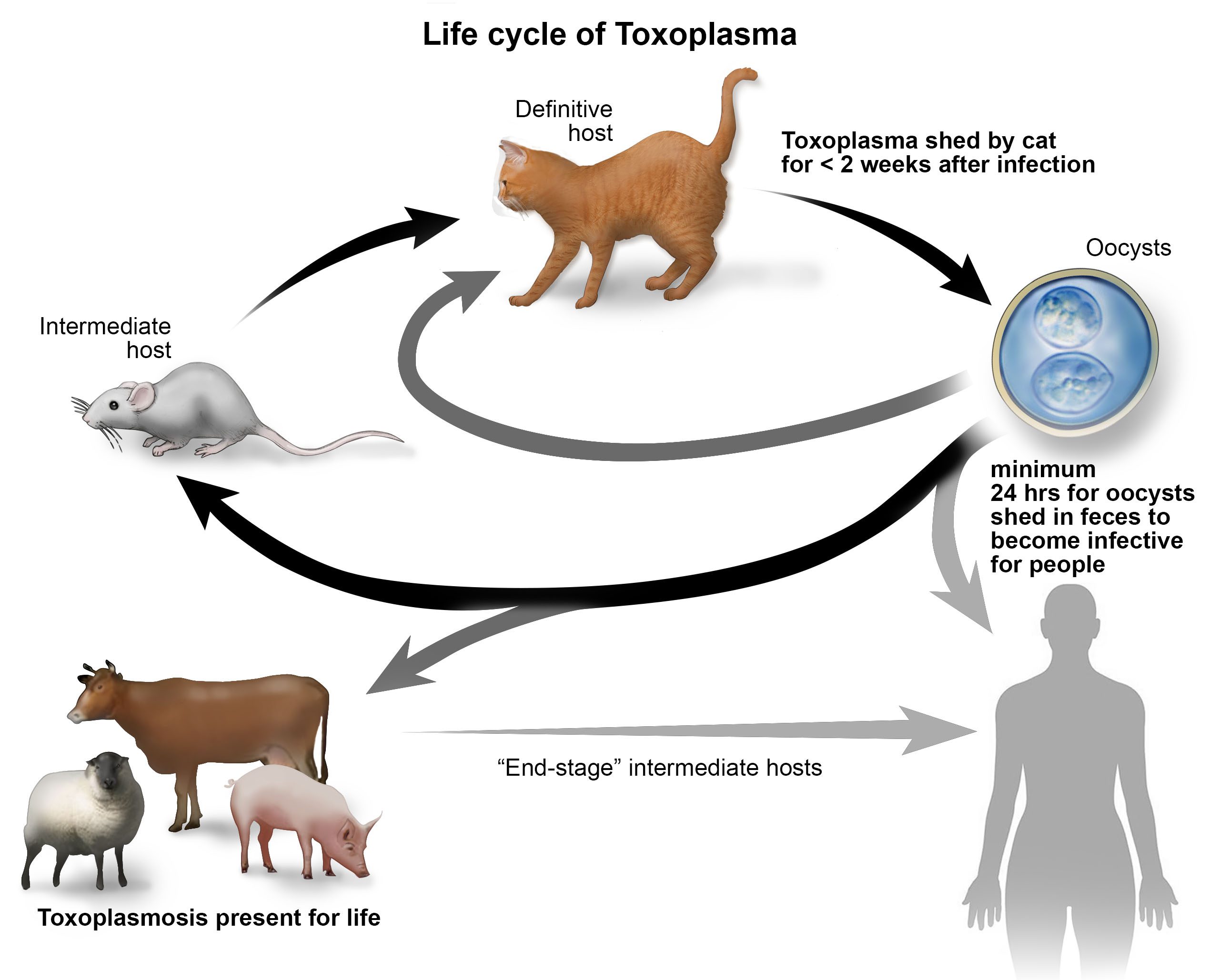Key Takeaways:
- Roundworms are a common and often overlooked threat to cats.
- Cats can contract roundworms through ingestion of infected prey or contaminated soil.
- Roundworm infections can cause serious health issues in cats, including weight loss, vomiting, and diarrhea.
- Regular deworming is crucial in preventing and treating roundworm infections in cats.
- Good hygiene practices, such as cleaning litter boxes regularly and washing hands after handling soil, can help reduce the risk of roundworm transmission to humans.
Did you know that there is a hidden threat lurking in the lives of our beloved feline friends? Roundworms, these sneaky parasites, may not be visible to the naked eye, but their impact on cats can be devastating. Understanding the dangers of roundworms is essential for any cat owner, as it can help protect our furry companions from harm. In fact, studies show that nearly 25% of cats worldwide are infected with roundworms at any given time. So join me as we delve into this fascinating yet alarming topic and uncover the hidden world of roundworms: the silent danger that could be affecting your cat's health without you even realizing it.
What are roundworms and why are they a hidden threat to cats?
Understanding Roundworms
Roundworms are parasites that can infect cats and other animals. They are long, thin worms that live in the intestines of their hosts. These worms can grow up to several inches in length and have a spaghetti-like appearance. Roundworms reproduce by laying eggs, which are then passed out of the host's body through their feces.
The Hidden Threat
Roundworm infections can be a hidden threat to cats because they often don't show obvious signs of illness. Cats can carry roundworms without showing any symptoms, making it difficult for owners to know if their pets are infected. However, even without visible signs, these parasites can still cause harm to the cat's health.
Roundworms feed on the nutrients inside the cat's intestines, depriving them of essential vitamins and minerals. This can lead to malnutrition and weight loss over time. In severe cases, roundworms can cause blockages in the intestines or migrate to other organs, causing more serious health issues.
It is important for cat owners to be aware of this hidden threat and take preventive measures to protect their pets from roundworm infections. Regular deworming and proper hygiene practices can help keep cats safe from these parasites.
How do cats get roundworm infections?
Cats can get roundworm infections through various routes. The most common way is by ingesting the eggs or larvae of the parasites, which may be present in contaminated soil, water, or prey animals such as rodents or birds.
Infection from Mother Cats
Kittens can also acquire roundworm infections from their mother while still in the womb or through her milk during nursing. This is known as congenital transmission and is a common route of infection for young cats. The larvae of the roundworms can migrate through the mother's body and reach the developing kittens.
Ingestion of Infected Prey
Cats that hunt and eat rodents, birds, or other small animals are at risk of getting roundworm infections. If these prey animals are already infected with roundworms, the cat can become infected by consuming them.
Environmental Contamination
Roundworm eggs can survive in the environment for long periods, especially in moist and warm conditions. Cats can accidentally ingest these eggs while grooming themselves or by coming into contact with contaminated surfaces such as litter boxes, soil, or grass.
To prevent roundworm infections, it is important to keep cats away from potentially contaminated areas and ensure they have a clean living environment. Regular deworming is also crucial, especially for kittens and outdoor cats that are more prone to exposure.
Can roundworms be passed from cats to humans? If so, how?
Yes, roundworms can be passed from cats to humans. This type of transmission is known as zoonotic transmission. Although it is relatively rare, it is still a concern for pet owners and particularly for those with young children or individuals with weakened immune systems.
Ingestion of Roundworm Eggs
The main way humans can get infected with roundworms from cats is by accidentally ingesting the eggs of the parasites. This can happen when handling contaminated soil or feces without proper hygiene practices, such as not washing hands thoroughly afterward.
Migrating Larvae
In some cases, if a person comes into direct contact with infected cat feces or contaminated soil and the larvae are able to penetrate their skin (usually through cuts or abrasions), they may develop a condition called visceral larva migrans. This occurs when the larvae migrate through the body, potentially causing damage to organs.
To prevent zoonotic transmission of roundworms, it is important for cat owners to practice good hygiene. This includes washing hands thoroughly after handling cats or cleaning litter boxes, keeping children away from areas where cats defecate, and regularly deworming their pets.
What are the signs of roundworm infection in cats?
Common Signs
Roundworm infections in cats can often go unnoticed as they may not show any visible symptoms. However, there are certain signs that cat owners should watch out for. One common sign is the presence of worms in your cat's vomit or feces. These worms resemble spaghetti and can be easily identified. Another sign is a pot-bellied appearance in your cat, which occurs when a large number of worms accumulate in their intestines. Additionally, if you notice your cat experiencing weight loss, dull coat, or diarrhea, it could be indicative of a roundworm infection.
Unusual Signs
While the aforementioned signs are more common, there are also some unusual signs that may indicate a roundworm infection. For instance, if your cat has difficulty breathing or coughs frequently, it could be due to migration of the roundworm larvae into their lungs. Moreover, if you observe behavioral changes such as increased aggression or lethargy in your cat, it might be worth considering a roundworm infection as a possible cause.
When to Consult a Veterinarian
If you notice any of these signs or suspect that your cat may have a roundworm infection, it is crucial to consult a veterinarian for proper diagnosis and treatment. They will conduct tests to confirm the presence of roundworms and prescribe appropriate medication to eliminate the parasites.
It's important to note that while these signs can indicate a roundworm infection, they can also be symptoms of other health issues. Therefore, seeking professional veterinary advice is essential for an accurate diagnosis.
How can cat owners prevent their pets from getting roundworms?
Preventing roundworm infections in cats involves implementing effective preventive measures and maintaining good hygiene practices. Here are some steps that cat owners can take to reduce the risk of their pets contracting roundworms:
Regular Deworming
One of the most important preventive measures is regular deworming. Administering deworming medication as recommended by your veterinarian helps eliminate any existing roundworms and prevents future infections. Kittens should be dewormed starting at two weeks of age, with subsequent treatments every two to three weeks until they are three months old. Adult cats should be dewormed at least every three months.
Good Hygiene Practices
Maintaining good hygiene practices is crucial in preventing roundworm infections. Cat owners should ensure that litter boxes are cleaned regularly and feces are promptly disposed of in a sealed bag. Washing hands thoroughly after handling cat litter or coming into contact with soil is also important to prevent the ingestion of roundworm eggs.
Flea Control
Fleas can act as intermediate hosts for roundworms, so it's essential to control flea infestations. Regular use of flea prevention products recommended by your veterinarian can help minimize the risk of your cat ingesting fleas infected with roundworm larvae.
By following these preventive measures, cat owners can significantly reduce the chances of their pets getting infected with roundworms and promote a healthier environment for both cats and humans.
Are there treatments available for cats with roundworm infections?
Yes, there are effective treatments available for cats with roundworm infections. Once diagnosed by a veterinarian, appropriate medications will be prescribed to eliminate the parasites from your cat's body.
Deworming Medication
The most common treatment for roundworm infections in cats involves administering deworming medication. These medications come in various forms such as tablets, liquids, or spot-on treatments. They work by either paralyzing or killing the worms, allowing them to be expelled from the cat's body through feces.
Follow-Up Treatment
In some cases, a follow-up treatment may be necessary to ensure complete elimination of the roundworms. This is especially important if your cat has a severe infection or if they are at a higher risk of reinfection due to their environment or lifestyle.
Importance of Veterinary Guidance
It's crucial to consult with a veterinarian before administering any medication to your cat. They will determine the appropriate dosage based on your cat's weight and health condition. Additionally, they can provide guidance on the frequency of deworming and any necessary precautions to take during and after treatment.
Remember, self-diagnosis and over-the-counter treatments may not be effective in eliminating roundworm infections. Seeking professional veterinary advice ensures proper treatment and helps prevent potential complications.
Why is it important for cat owners to regularly deworm their pets, even if they don't seem sick?
Regularly deworming cats, even if they appear healthy, is essential for several reasons:
Asymptomatic Infections
Cats infected with roundworms may not always show visible symptoms. They can carry a significant number of worms without exhibiting any signs of illness. Regular deworming helps eliminate these hidden infections and prevents potential health issues that may arise in the future.
Prevent Transmission to Humans
Roundworms can pose a risk to human health, especially children who often come into close contact with cats. Accidental ingestion of roundworm eggs through contaminated soil or contact with infected feces can lead to serious health problems. By regularly deworming cats, the risk of transmission to humans is significantly reduced.
Protecting Other Animals
Cats that go outdoors or interact with other animals have an increased risk of contracting roundworms. Regular deworming not only protects the infected cat but also prevents the spread of parasites to other animals in the household or community.
Preventive Approach
Regular deworming is a preventive approach that helps maintain the overall health and well-being of cats. By eliminating roundworms, cat owners can ensure their pets lead a healthy and active life, free from the potential complications associated with roundworm infections.
It's important to consult with a veterinarian to determine the appropriate deworming schedule for your cat based on their lifestyle, age, and overall health. Following their guidance ensures optimal protection against roundworm infections and promotes a safe environment for both cats and humans.
In conclusion, roundworms are a hidden threat to cats that can cause serious health problems. It is important for cat owners to be aware of the risks and take preventive measures to keep their furry friends safe and healthy.
Are roundworms life-threatening in cats?
While adult cats are not significantly affected by roundworms, they can pose serious risks to kittens and older cats who are already weakened. Common symptoms in kittens include a swollen belly, discomfort in the abdominal area, loss of appetite, a dull coat, vomiting, diarrhea, or stunted growth.
What happens if roundworms go untreated in cats?
Although healthy adult cats can generally survive a roundworm infestation, a high number of parasites can lead to severe and potentially life-threatening symptoms, making it a common cause of illness. In fact, roundworms are often the cause of death, especially for kittens and cats with pre-existing health issues.
What problems do roundworms cause in cats?
What are the effects of roundworms on my cat? Roundworms typically reside in the cat's intestines. While many cats may not show any signs of infection, those with severe roundworm infestations often exhibit symptoms such as vomiting, weight loss, dull fur, and a swollen abdomen. If the roundworms migrate to the lungs, the cat may also experience coughing.
How long does it take for roundworms to get rid of a cat?
What is the Duration for Eliminating Roundworms in Cats? The treatment usually takes around three days to eliminate roundworms in cats, but it specifically targets the adult worms and not the larvae. Therefore, it may be necessary to repeat the treatment until the eggs have hatched and the larvae have been killed.
Can I touch my cat with roundworm?
While humans cannot directly contract roundworms from cats, they can inadvertently consume roundworm eggs by coming into contact with contaminated soil or feces and not properly washing their hands afterwards. If roundworm eggs are ingested, the parasite larvae can migrate into our body tissues.
Do I need to clean my house if my cat has roundworms?
Keeping your cat's living area clean and free from surfaces that may have parasites is important in preventing infections. Make sure to regularly wash their bedding, toys, and litter box, and thoroughly vacuum carpets and furniture to reduce the risk of contamination.

















